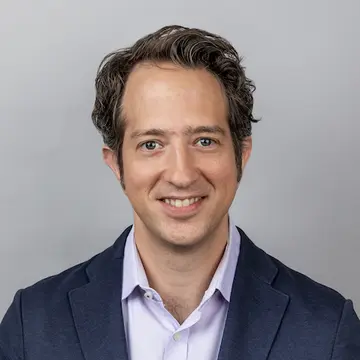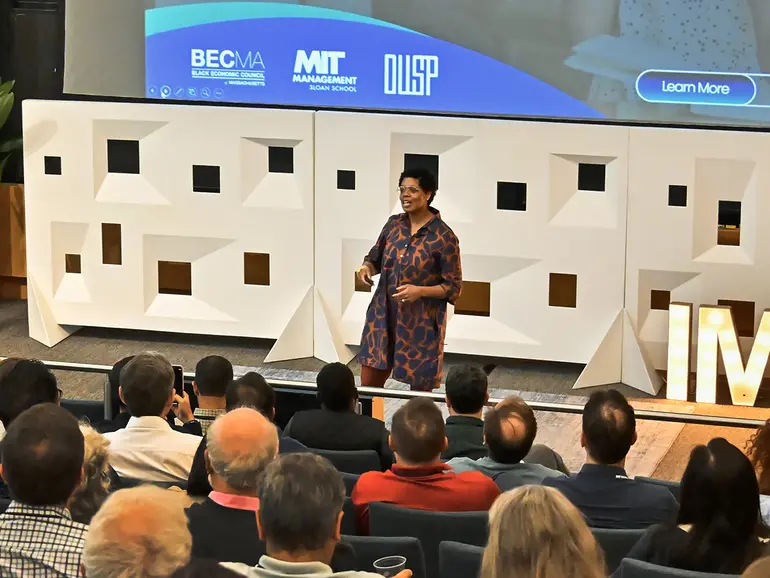The 6 stages of systemic investing
This new starter kit offers investors practical steps and tools to move from from isolated efforts to coordinated, systems-level change.

Faculty
Jason Jay, PhD, is the Director of the MIT Sloan Sustainability Initiative and a Senior Lecturer at the MIT Sloan School of Management. His teaching, research, and community-building help people navigate the tensions that arise as we simultaneously steward our own resources and the long-term health of people and planet.
Jason’s work has advanced the fields of corporate sustainability, sustainability-oriented innovation, and systemic investing. His research is available in leading publications including Academy of Management Journal, California Management Review, Harvard Business Review, MIT Sloan Management Review, Stanford Social Innovation Review, and World Economic Forum. His international bestselling book, Breaking Through Gridlock: The Power of Conversation in a Polarized World (co-authored with Gabriel Grant), provides a roadmap for having effective conversations about sustainability issues.
Jason’s current research in the Owning Impact Project explores how investors can drive systems change and holistic positive impact in arenas like climate change, biodiversity, and social inequality. His field-building efforts in systemic investing include leadership roles in CSP, TransCap, TWIST, and FEST networks, and in the Shareholder Democracy movement. He is an advisor to venture capital firms including TO VC and Vectors Capital.
Jason’s executive education courses have reached thousands of leaders globally, from C-suite executives to family offices to professional services firms. At the Master's level, he teaches flagship courses for the Sustainability Certificate, including Innovating for Impact and Business Strategies for a Sustainable Future.
Outside MIT, Jason facilitates strategy development for companies, civil society organizations, and business families, building alignment and shared commitment to ambitious sustainability goals. His clients have included Sun Life, EFG Asset Management, Novartis, Bose, Environmental Defense Fund, US Forest Service, BP and the World Bank. He is a faculty affiliate at the Harvard Kennedy School’s Social Innovation and Change Initiative.
Prior to MIT, Jason ran an edtech startup, traveled around the world, taught kindergarten, and worked as a consultant with Dialogos International. He holds a PhD in Organization Studies from MIT Sloan, an AB in psychology and a Master’s in education from Harvard University. He enjoys hiking the White Mountains, sculling on the Charles River, quality time with his wife and two children, and travel to visit family in Italy and India.
Featured Publication
"Getting Strategic about Sustainability."Jay, Jason, Kate Isaacs, and Hong Linh Nguyen. Harvard Business Review, January 2025.
Featured Publication
"Systemic Investing for Social Change."Daggers Jess, Alex Hannant, and Jason Jay. Stanford Social Innovation Review, December 12, 2023.
Rajagopalan, Sanjay, Scott McAlister, Jason Jay et al. Nature Reviews Cardiology. Forthcoming.
Fumi, Alessandro and Jason Jay, MIT Sloan Working Paper 7321-25. Cambridge, MA: MIT Sloan School of Management, September 2025.
Khan, Hibah, Jason Jay, and Kirsten Andersen, MIT Sloan Working Paper 7327-25. Cambridge, MA: MIT Sloan School of Management, August 2025.
Genç, Janset Nil, Jason Jay, Idongesit Sampson, and Johan Schot, MIT Sloan Working Paper 7326-25. Cambridge, MA: MIT Sloan School of Management, June 2025.

This new starter kit offers investors practical steps and tools to move from from isolated efforts to coordinated, systems-level change.

The 2025 MIT Sloan Reunion included two sessions that featured alumni with valuable insights on impactful leadership.
In this interview with Jason Jay, director of the Sustainability Initiative at MIT Sloan, he said: "This could play out in many ways — part of it will be decided by the international community, investors bringing their own capital to complement Chinese capital, companies with technology and expertise, governments overseeing data privacy, EVs, etc. China has developed crucial capabilities the world needs, which is a note of hope — but it comes with risks we must manage."
Multiple MIT Sloan projects were recognized in this year's Financial Times' Responsible Business Education awards.
"Strategy, it is often said, is about choosing what not to do. But when it comes to sustainability, many companies toss that advice aside."
Common ground is "where we get to use the energy of polarization to be creative and not just to get shocked and zapped into our own bubble."
A month-long senior executive program designed for a diverse group of experienced leaders seeking transformative learning among global peers. AMP participants will engage in custom learning components led by MIT’s world-renowned faculty, including interactive classroom sessions, management simulations, case studies, 1:1 leadership coaching, and individualized feedback assessments. Participants will also explore the many companies, labs and centers that make MIT and surrounding Kendall Square the epicenter of innovation worldwide.
Recent research indicates that most families that achieve financial success—typically through a family company—lose their success within three generations. Why do some family enterprises derail while others prosper? This program for multigenerational families will help you understand and implement the important driving factors of long-term, enduring, family enterprise success. The course also examines where family enterprises are going and what will drive their success in the future economy.